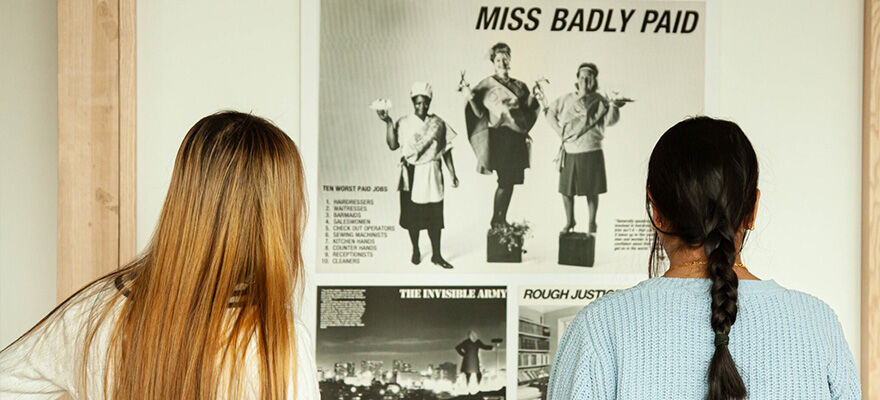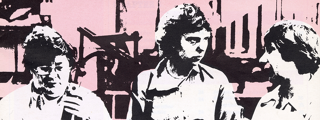This research introduces the work and activism of Birmingham-based women in the mid-1980s. The project includes an exhibition based at the Royal Birmingham Conservatoire which investigates the contributions of women in addressing gender equality in Birmingham.
The exhibition provides an opportunity to celebrate the acquisition of the Barbara Webster Collection into the Faculty of Arts, Design and Media Archive, at Birmingham City University. The Barbara Webster Collection is the starting point for the exhibition which focuses on the Women’s Committee, established by Birmingham’s Labour Council. In addition, the work on display includes items from the Faculty of Arts, Design and Media Archive and donations made by other women linked to that period. The exhibition includes the creative work of women who challenged stereotypes and celebrated the diverse experiences of women in Birmingham. It combines the formal work achieved in the City Council, with women’s activism and creative endeavours, which together contributed to fundamental changes for Birmingham.

Photograph by Isabella Hutchings
Dr Annette Naudin, Associate Professor in Arts, Design, and Media at BCU and researcher at the Birmingham Centre for Media and Cultural Research, is leading the research project. Annette acquired the Barbara Webster Collection for the ADM archive in 2023. The collection informed an application to the British Academy and Leverhulme Small Grant Scheme, which has resulted in a set of research outputs.
The research will explore a range of methodologies and outputs, including the exhibition, a roundtable discussion in collaboration with Dr Karen Patel (Director of CEDIA at BCU) and a collection of oral histories through a series of podcasts and interviews with key individuals from the period.
Annette explains:
"I was fascinated by Barbara’s story and the work that women did in the 80s to address gender inequalities. I was motivated by the fact that this seemed to be a forgotten aspect of Birmingham’s history and by the possibility that the legacy of this important work would disappear."
Annette is drawing on archival material to explore themes of:
- Gender equality
- The Women’s Liberation Movement
- Women’s photography
- Birmingham photographers such as Rhonda Wilson
- Birmingham’s history from the mid-80s and its potential relevance now
- Women’s experience of inequality in Birmingham
- Women’s art, cultural and media production in Birmingham, in the 70s and 80s
How can archival research be used as a tool in current debates?
Annette explains:
"The research seeks to celebrate and give a voice to the women who during this period, the mid-80s, worked hard to make significant steps towards addressing gender and other inequalities in Birmingham. Too often women are written out of history and this research aims to ensure that this does not happen."
"Furthermore, the work of the Women’s Unit is connected to cultural production in different ways. Posters from the ‘Worth Paying For’ exhibition and the many events that were part of the Women Celebrate festivals are good examples of how the politics of the Women’s Liberation Movement could be expressed by women. Often this was through different cultural activities such as photography, music, and other forms of cultural expression showcased in the exhibition linked to this research."
The research project invites us to reflect on gender equality now, by considering how past voices, campaigns, and activism help us challenge contemporary inequalities. Linking themes from the Barbara Webster Archive to contemporary debates in Birmingham’s cultural policy, the project will explore the use of archival research as a tool for re-contextualising the city’s history and current debates.
